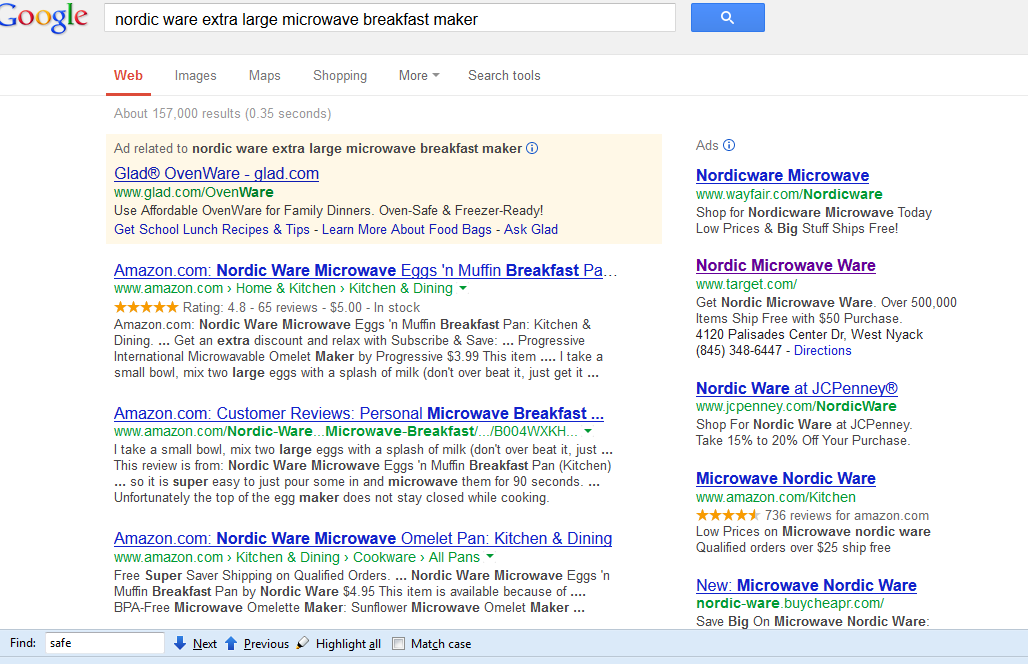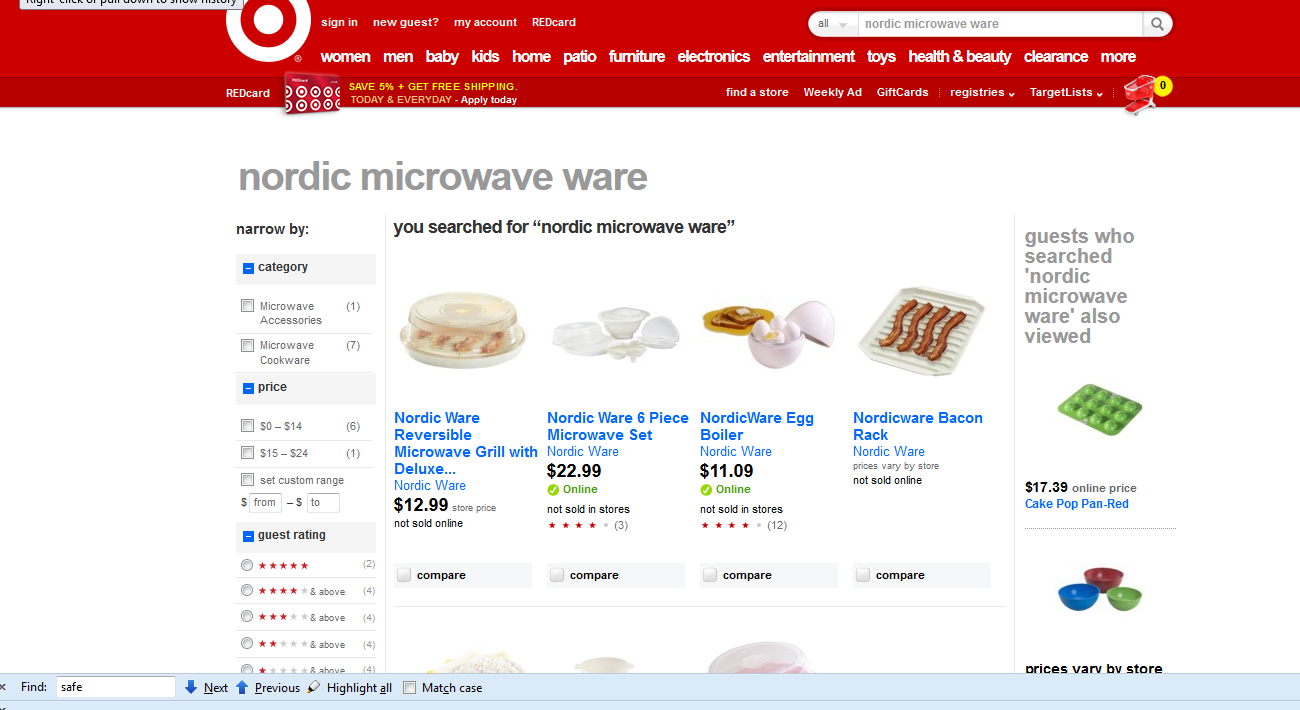When I speak to groups, I often ask how many people never click on paid search ads and many hands go up–usually half the room. It ain’t true. Estimates are that around one-quarter of all search clicks are on paid search ads and it is 100% of Google’s search income, so most people click on ads at least once in a while. But people raise their hands because they still get frustrated by paid ads and they wish they hadn’t clicked on them.

Part of the frustration comes from advertisers who use broad match for keywords. There’s nothing intrinsically wrong with doing so–maybe it works most of the time–but frequently the searchers are looking for something far more specific than the the advertiser pays off with. Take a look at this example of the results of a very specific Google search:

Take a look at the ad that is highlighted in purple–it looks like a good choice and it is from the well-known retailer Target. But look what you get when you click on the ad:
Target responds with an internal search-generated page that searched for only a couple of the words from the original keyword. And it really doesn’t provide results that isolate anything specific enough to make the searcher happy.
This is not an isolated incident. Today, I searched for fence removal and saw ads that contained the words, but when I clicked through, all the pages talked about was fence installation and fence repair. What’s happening here is that advertisers are buying short, simple keywords and using broad match to cast a wide net. But because they are matching these deep, long-tail keywords, they are showing searchers a far less specific answer to the question–a broad match for fence will match fence removal. It will also match fence alternative or electric fence or many other phrases they don’t want traffic for.
The best idea would be to use negative keywords so that the ads were not shown for such obvious misses as fence removal. But worse is that they use techniques that dynamically insert the keyword into the ad, so the ad says fence removal even though the advertiser doesn’t remove fences.
It’s a double whammy. If you use this approach, you pay for clicks for people who will never buy. You must comb through your paid search referrals to see the keywords that do not convert. Over time, you should aggregate the words that have the lowest conversion rates to form your negative keyword list. If you don’t, you are throwing your money away and annoying your prospective customers.





